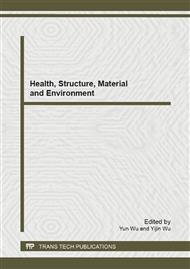p.777
p.783
p.789
p.795
p.801
p.807
p.813
p.817
p.823
Comprehensive Benefit Evaluation of Rural Household Biogas Based on Fuzzy Comprehensive Evaluation Method
Abstract:
The comprehensive benefit evaluation is the key of reasonable development for the rural household biogas. The evaluation index was established according to the economic efficiency, energy efficiency, ecological benefit and social benefits and so on, which was used to resolve the problem that the effect factors of comprehensive benefit evaluation of rural household biogas are more and the quantitative evaluation can't completely be finished. The secondary mathematical model of fuzzy comprehensive evaluation for comprehensive benefit evaluation of rural household biogas was established by fuzzy mathematical method. The case calculation shows that this method is simple and practical, which not only convenient for experts to compare, selection and score, but also has the effect of quantification. It is integrated between the qualitative analysis and quantitative evaluation and the result is satisfactory through.
Info:
Periodical:
Pages:
801-806
DOI:
Citation:
Online since:
February 2013
Authors:
Price:
Сopyright:
© 2013 Trans Tech Publications Ltd. All Rights Reserved
Share:
Citation:


